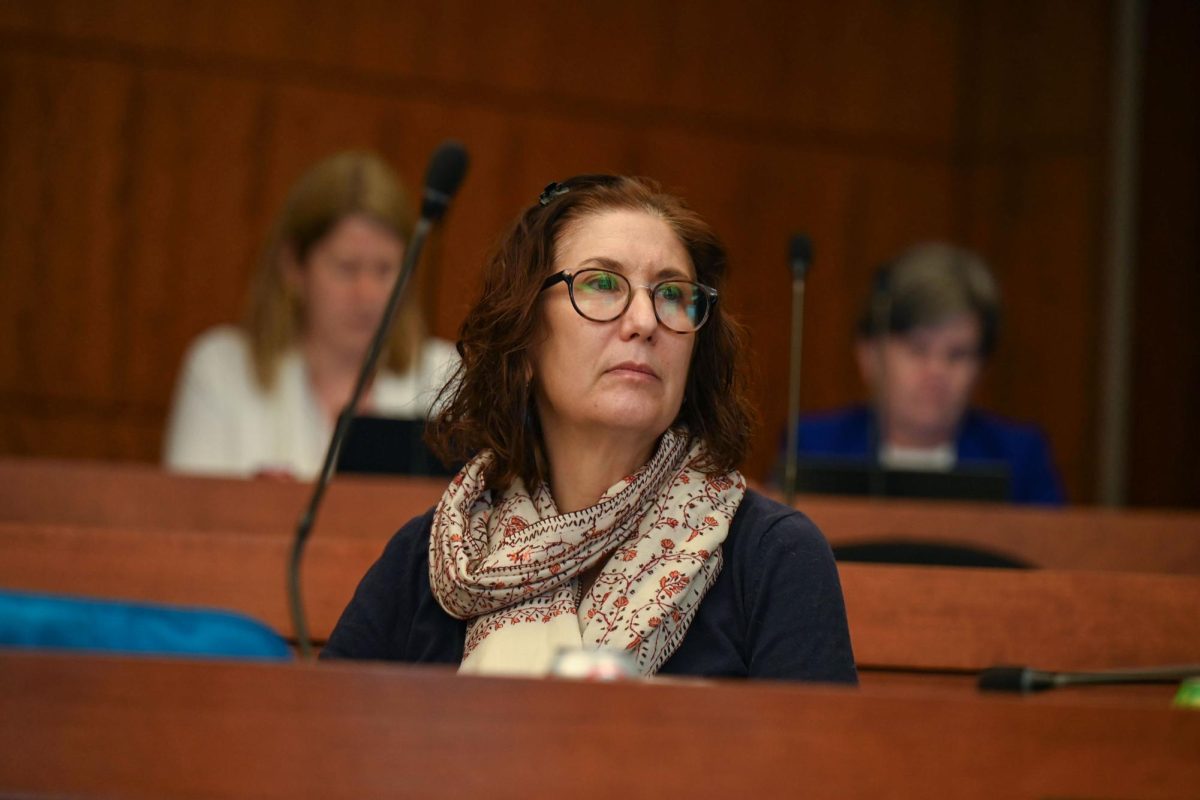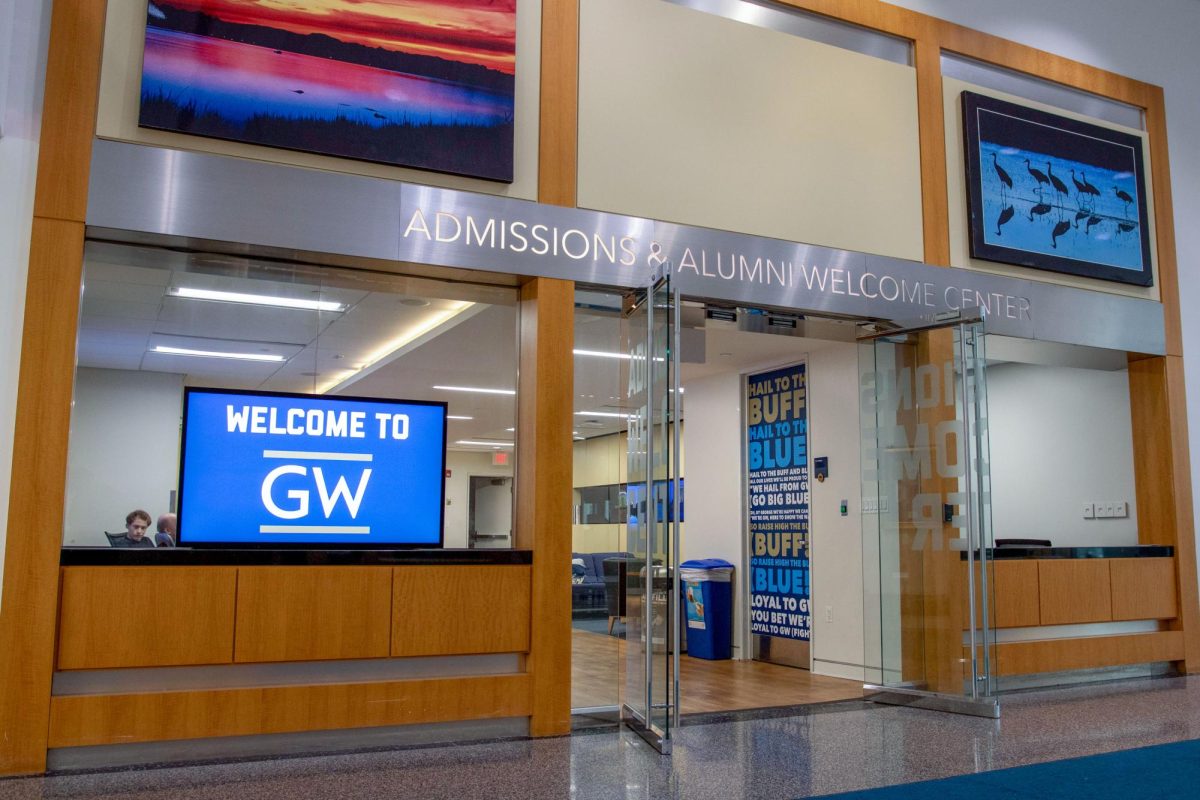As Arthur Wilson’s term as chair of the Faculty Senate’s executive committee comes to an end, faculty senators said he led faculty through the COVID-19 pandemic while pushing for efforts to improve shared governance with “skill” and “diplomacy.”
Wilson, an associate professor of finance, will conclude his two-year term as executive committee chair in late April after senators unanimously approved a resolution of appreciation for him at their meeting Friday. Faculty senators said Wilson was able to effectively advocate for professors’ increased involvement in administrative decisions as the University undergoes leadership changes and emerges from the pandemic.
Wilson joined the executive committee during the onset of the pandemic in April 2020 and has since spearheaded faculty efforts to improve shared governance at the University. He serves on the shared governance task force, which has devised recommendations for administrators, faculty and trustees to create “clear and frequent” channels of communication and collaborate on decisions like selecting the next University president.
“Over time, I think trustees realized we were as committed to the University as anybody,” Wilson said at Friday’s senate meeting.
Board of Trustees Chair Grace Speights created the task force around the time when former University President Thomas LeBlanc announced his retirement last May.
Wilson was also a member of the team of professors who conducted a faculty survey last year on University leadership that found a majority of faculty had lost confidence in LeBlanc’s abilities.
Speights announced in the fall that the Board would delay the search for LeBlanc’s permanent replacement, citing a need to first strengthen shared governance to place GW in the best position possible to attract talent amid a large number of ongoing presidential searches nationwide.
“The University is more likely to succeed if we have robust participation on the faculty side of shared governance,” Wilson said in the meeting.
Wilson has served on the senate for more than 10 years and concluded his executive committee tenure after he reached the committee’s three-year limit, according to the resolution of appreciation. He declined a request for an interview.
Senators unanimously voted to approve the new slate of executive committee members at their meeting Friday, led by incoming executive committee chair Jim Tielsch, a faculty senator for at least four years and the chair of the Department of Global Health.
Tielsch did not return a request for comment.
The senate also approved a resolution of appreciation for Miriam Galston, an associate professor of law, who served as vice chair of the executive committee for two years alongside Wilson and will also conclude her term on the committee this spring.
Shaista Khilji, a professor of human and organizational learning and international affairs and a member of the executive committee, said Wilson led efforts to build a model of shared governance on the senate that promotes “transparency” among trustees, administration and faculty, which she hopes the new executive committee chair will replicate.
She said Wilson has stayed open-minded about faculty concerns and has kept the faculty “unified” through his leadership.
“He listens, cooperates and is not shy to learn about issues while also admitting his shortcomings,” Khilji said in an email.
Wilson entered his position during a period of faculty discontent with LeBlanc’s strategic vision to reduce GW’s incoming class sizes as part of an initiative to cut undergraduate enrollment by 20 percent over five years. Officials halted the plan when the pandemic hit and declared the plan “obsolete” in November 2020 amid undergraduate enrollment drops alongside widespread faculty criticism.
“Making sense of the gathering chaos while also charting a productive path was a challenging task,” Khilji said. “But Art managed it well with his teamwork skills.”
Anthony Yezer, a faculty senator who worked with Wilson on the senate’s fiscal planning and budgeting committee and a professor of economics, said Wilson helped “elevate the debate” during a time of tension among trustees, faculty and administrators.
“There is a narrow line between respecting and listening to others and still maintaining your position,” he said. “Arthur does this very well. Even where there is disagreement in a meeting, everyone leaves thinking that he has listened carefully to their point of view.”
Yezer said he expects Tielsch, the new chair of the executive committee, to take on issues like the search for a permanent University president and plans to potentially build new campus buildings as part of the Strategic Campus and Facilities Master Plan. Officials presented potential concepts for the future of GW’s campus like a “reimagined” Kogan Plaza with a new student center at a senate meeting in October.
“Finally the issue of long term planning for GWU, developing plans for what we want GWU to look like 5 or even 10 years in the future,” he said in an email.
Harald Griesshammer, a faculty senator on the executive committee and associate professor of physics, said Wilson had a “flexible” style of leadership where he established his opinions on how the University should operate without forcing his ideas onto the senators. He said Wilson was a “trustworthy conduit” between the trustees and administrators because of his ability to relay broader faculty sentiment to the Board.
“And nonetheless he would, in the end, be a faithful spokesperson for the faculty and not for his own opinion,” Griesshammer said.
Griesshammer said he hopes Tielsch will improve communication among trustees, administration and faculty because it is difficult to predict what the Board wants from the faculty to reach goals like a 75 percent faculty tenure rate. He said Wilson’s dedication to listening to faculty has provided a “fresh start” for faculty representation with trustees since the beginning of his term.
“I think the new chair is going to pick up the baton to continue and improve the relations between the Board and the faculty and the administration,” he said. “I think in particular, the relation to the Board is really crucial there.”










